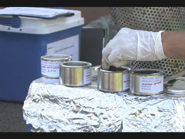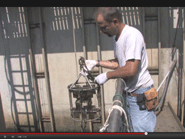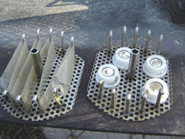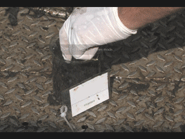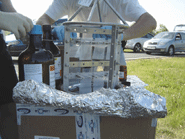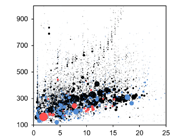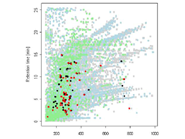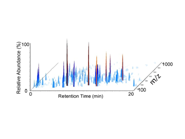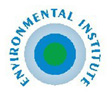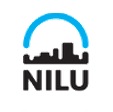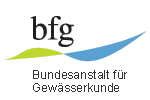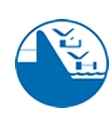You are here
Archive 2022
2022
19-20 October 2022, Berlin, Germany (hybrid event)
Microplastics in soils – a threat for human health and the environment?
This conference focuses mainly on impacts of microplastics in soils, approaches and policy recommendations. Research has shown that soils are a major sink for microplastics. The international conference provides an opportunity to learn and exchange knowledge on the topic of microplastics in soils and is aimed at scientists and decision-makers alike. The first day of the event focuses on the state of the science, the second day on identifying policy, solutions and recommendations for action. The hybrid event will take place on 19 and 20 October, 2022, lunch-to-lunch (19 October: 12:30 pm -18 pm, 20 October: 8:30 am – 13 pm) at the Neue Mälzerei, Friedenstraße 91, D-10249 Berlin, Germany.
Registration and participation: This event will take place as a hybrid event. A limited number of participants may join in presence at our venue. Please indicate upon registration if you would like to participate in presence or online. Due to the limited capacity at our venue, we will be able to confirm your seat only afterwards in a separate email. Participation capacities may also be influenced by the pandemic situation in October. Online participation is not limited.
Please register here: https://forms.ecologic.eu/microplastics
The agenda is available here: https://www.umweltbundesamt.de/en/conference-microplastics-in-soils
18-19 October 2022, Paris, France
“Developing science-informed policy responses to curb endocrine disruption in freshwater”
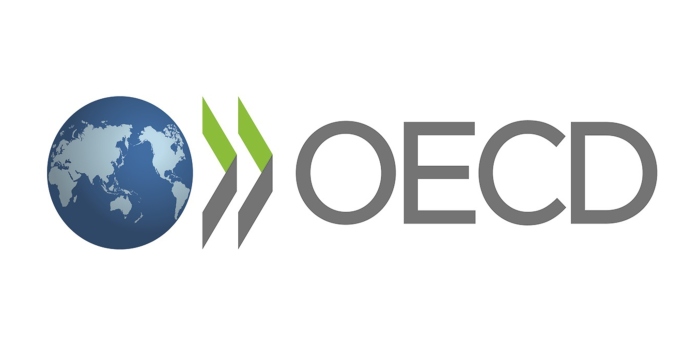 The ultimate objective of the workshop is to provide policy guidance, founded on scientific knowledge and country practices, to manage endocrine disruption in the freshwater environment.
The ultimate objective of the workshop is to provide policy guidance, founded on scientific knowledge and country practices, to manage endocrine disruption in the freshwater environment.
The objectives of the workshop are to:
- Build a policy-relevant knowledge base on endocrine disruption in freshwater and its impacts on ecosystems and human health;
- Identify lessons learnt and good practices from country case studies on monitoring and policy approaches on freshwater;
- Explore policy options to advance from monitoring and data collection to mitigating endocrine disruption. Some options might be centered around the effects of endocrine disruption to complement “conventional” life-cycle approaches of sources, uses and disposal of chemicals.
The outcomes of the workshop will inform the OECD report on Policy Responses to Endocrine Disruption in Freshwater, which will feature case studies and include policy recommendations.
For more information, please contact Marijn Korndewal (marijn.korndewal@oecd.org).
18-19 October 2022 (virtual event)
Assessing Risks for Soils: Challenges and Opportunities
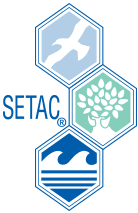 To balance economic objectives with the preservation and protection of soils, particularly in light of the goals of the green deal and the soil strategy for 2030, we need to first understand the current state of soil biodiversity and the diversity of soil types in general, as well as occurring soil threats. We need to explore and improve technologies that enable a multi-system or ecosystem-based approach to measure the impact of stress on soils, and we require an overarching regulatory framework to support sustainable soil systems across different habitats and land use types (e.g., agricultural or industrial land use). It’s a complex subject requiring cooperation among scientists and regulators. The webinar is for the SETAC and general soil science communities, and it will provide a forum to inform, understand and discuss pertinent issues and strategic paths forward to support our common goal for a sustainable, healthy soil ecosystems.
To balance economic objectives with the preservation and protection of soils, particularly in light of the goals of the green deal and the soil strategy for 2030, we need to first understand the current state of soil biodiversity and the diversity of soil types in general, as well as occurring soil threats. We need to explore and improve technologies that enable a multi-system or ecosystem-based approach to measure the impact of stress on soils, and we require an overarching regulatory framework to support sustainable soil systems across different habitats and land use types (e.g., agricultural or industrial land use). It’s a complex subject requiring cooperation among scientists and regulators. The webinar is for the SETAC and general soil science communities, and it will provide a forum to inform, understand and discuss pertinent issues and strategic paths forward to support our common goal for a sustainable, healthy soil ecosystems.
Organised by SETAC.
18-20 September 2022, Utrecht, The Netherlands (hybrid event)
International Passive Sampling Workshop (IPSW 2022)
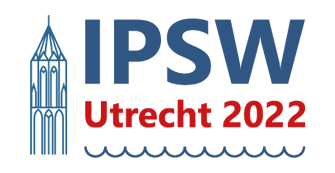 The International Passive Sampling Workshop (IPSW) is a platform for sharing knowledge and information on the use and developments within the field of passive sampling. In this edition of the conference we want to pay special attention to the application of the technique within a regulatory context. To achieve this goal we welcome a diverse audience from experts in the passive sampling development and application technologies to new users becoming more familiar with the passive sampling advantages. Do you want to present your work on passive sampling at a scientific congress or want to know more about the use and benefits of passive sampling from a regulatory perspective? Have a look at https://ipsw.eu/ and register! Early bird registration is open until the 30th of June.
The International Passive Sampling Workshop (IPSW) is a platform for sharing knowledge and information on the use and developments within the field of passive sampling. In this edition of the conference we want to pay special attention to the application of the technique within a regulatory context. To achieve this goal we welcome a diverse audience from experts in the passive sampling development and application technologies to new users becoming more familiar with the passive sampling advantages. Do you want to present your work on passive sampling at a scientific congress or want to know more about the use and benefits of passive sampling from a regulatory perspective? Have a look at https://ipsw.eu/ and register! Early bird registration is open until the 30th of June.
IPSW2022 is a collaboration between the IPSW organizing and scientific committee and the NORMAN working group on passive sampling.
23–26 August 2022, Charlottetown, Prince Edward Island, Canada (hybrid event)
PEOPLE 2022 - International Conference on Persistent, Emerging, and Organic Pollution in the Environment: Challenges and Solutions under Climate Change
The goal of this conference is to provide an international venue (in-person and virtual) and bring together researchers and professionals from diverse sectors and disciplines in natural science, engineering, social science, and medicine, to present their achievements and innovations, exchange ideas, share information, grow connections, and explore opportunities. This event will offer some interesting keynote speeches, technical presentations, short courses/workshops, field trips, and social events. The key topics include among others:
- Water Quality Management
- Water and Wastewater Treatment
- Drinking Water Safety
- COVID-19 Monitoring and Testing in the Environment
- Sludge Treatment and Management
- Waste Management and Minimization
- Air Pollution and Control (Outdoor and Indoor)
- Inland and Marine Oil Spill Response
- Emerging Contaminants - Fate, Transport and Effect
- Site Assessment and Remediation
- Resource Recovery and Management
Deadline for Abstract Submission: 21 April 2022
For further information https://www.engr.mun.ca/PEOPLENETWORK/index.php/people-2022-home/
1–2 July 2022, Thessaloniki, Greece
8th Metrology Conference
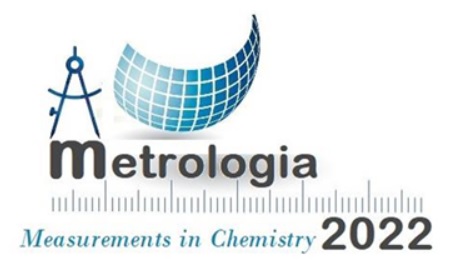 The theme of the 8th Conference will include all areas of metrological interest, with emphasis being given to Chemical Measurements. Dedicated satellite events will be organized as pre and post-conference events highlighting special emerging scientific aspects of recent developments and requirements.
The theme of the 8th Conference will include all areas of metrological interest, with emphasis being given to Chemical Measurements. Dedicated satellite events will be organized as pre and post-conference events highlighting special emerging scientific aspects of recent developments and requirements.
For further information https://www.greekmetrology.gr/
Deadline for Abstract Submission: 28 February 2022
Deadline for Full Paper Submission: 30 April 2022
14 June 2022, Berlin, Germany
LIFE APEX Final Workshop (hybrid event)
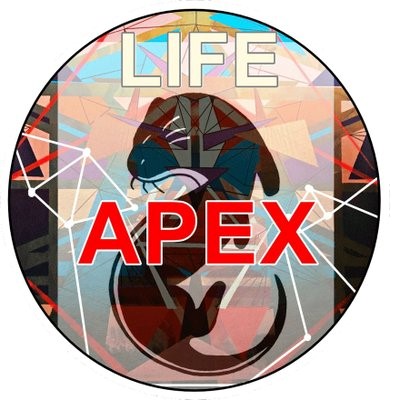 The workshop aims to present and discuss the novel results from the LIFE APEX project and to give a future perspective on the use of biomonitoring data of apex predators in hazard and risk assessment under REACH and other legislations. New data on the exposure of top predators from all over Europe to known pollutants and contaminants of emerging concern will be presented at the final conference of the LIFE APEX project. What is the relevance of these findings for environmental and chemical legislation and how can we use data from top predators for chemical management in the future? The morning session of the one-day meeting will present QA/QC measures for top predator samples, results of target and Non-Target Screening analyses and regulatory assessment of the data. In the afternoon, we plan to discuss how to further develop monitoring approaches for top predators with policy makers, regulators, research, industry, and non-governmental organizations.
The workshop aims to present and discuss the novel results from the LIFE APEX project and to give a future perspective on the use of biomonitoring data of apex predators in hazard and risk assessment under REACH and other legislations. New data on the exposure of top predators from all over Europe to known pollutants and contaminants of emerging concern will be presented at the final conference of the LIFE APEX project. What is the relevance of these findings for environmental and chemical legislation and how can we use data from top predators for chemical management in the future? The morning session of the one-day meeting will present QA/QC measures for top predator samples, results of target and Non-Target Screening analyses and regulatory assessment of the data. In the afternoon, we plan to discuss how to further develop monitoring approaches for top predators with policy makers, regulators, research, industry, and non-governmental organizations.
The workshop will be held on June 14 from 09:30-16:00 as a hybrid event with approximately 50 seats for on-site participation and online video access (no access restrictions).
More information on registration will follow shortly.
8–10 June 2022, Rennes, France
ALEXS 2022 - Atlantic Exposome Summer School
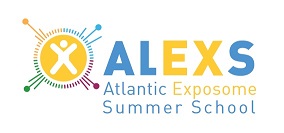 IRSET, in collaboration with ANSES and the Institute for Advanced Biosciences (IAB, Grenoble) are pleased to announce that Atlantic Exposome Summer School ALEXS 2022 - the 6th edition of the European Doctoral College on Environment and Health (EDCEH). Devoted to the exposome concept, this 3-day event will feature a variety of training, networking and learning opportunities. This is an excellent opportunity for those interested in emerging research and the latest methodologies in exposomics. Pioneer researchers in the field of exposomics involved in H2020 EU projects such as HELIX and ATHLETE projects or HBM4EU are scheduled to give plenary lectures. Other lectures will discuss a wide range of important topics including high-resolution mass spectrometry and 'omics' technologies, personal sensors, biomarkers, citizen sciences and statistical methodologies in epidemiology to better define and study the exposome. Workshops will be organised to discuss practical aspects of exposomics and will include hands-on learning opportunities.
IRSET, in collaboration with ANSES and the Institute for Advanced Biosciences (IAB, Grenoble) are pleased to announce that Atlantic Exposome Summer School ALEXS 2022 - the 6th edition of the European Doctoral College on Environment and Health (EDCEH). Devoted to the exposome concept, this 3-day event will feature a variety of training, networking and learning opportunities. This is an excellent opportunity for those interested in emerging research and the latest methodologies in exposomics. Pioneer researchers in the field of exposomics involved in H2020 EU projects such as HELIX and ATHLETE projects or HBM4EU are scheduled to give plenary lectures. Other lectures will discuss a wide range of important topics including high-resolution mass spectrometry and 'omics' technologies, personal sensors, biomarkers, citizen sciences and statistical methodologies in epidemiology to better define and study the exposome. Workshops will be organised to discuss practical aspects of exposomics and will include hands-on learning opportunities.
More information and registration here
22–26 May 2022, Durham, N.C. USA
Nontarget Analysis for Environmental Assessment
 The goal of this meeting is to move nontarget screening and its application forward in the context of environmental assessment by involving stakeholders from all sectors.
The goal of this meeting is to move nontarget screening and its application forward in the context of environmental assessment by involving stakeholders from all sectors.
The meeting will have a mixed format with keynote lectures, oral and poster presentations, and breakout discussion and demonstration groups. The meeting will intensely cover nontarget screening approaches, from the analytical technology, to application in real-field studies and implementation in risk assessment.
The meeting will include three main topics:
- Frontiers in nontarget screening: Instrumentation, data evaluation and application to monitoring the water environment
- Identifying transformation products and metabolites formed in biological and technical systems
- Tools to prioritize identification: Statistics, exposure indices, toxicity, fate modeling
For further information https://nta.setac.org/
2 March 2022, virtual
BoDEREC-CE Final Conference
This is the final conference of the BoDEREC-CE project where we will present to you our findings and discuss on PPCP problem in water and solutions possible implemented in the future. BoDEREC-CE sets an innovative approach by implementing pilot sites in Central Europe countries to monitor emerging contaminants (EC), above all pharmaceuticals and personal care products (PPCP). BoDEREC-CE is focused not only on the study of PPCP behaviour, particular attention is paid to assessing the effectiveness of attenuating this specific type of pollution, using different types of drinking water treatment technologies: the main output is an innovative model-based decision-making tool, which, given future legal thresholds, can be used as an early warning tool.
For further information https://www.interreg-central.eu/Content.Node/BoderecCE/
